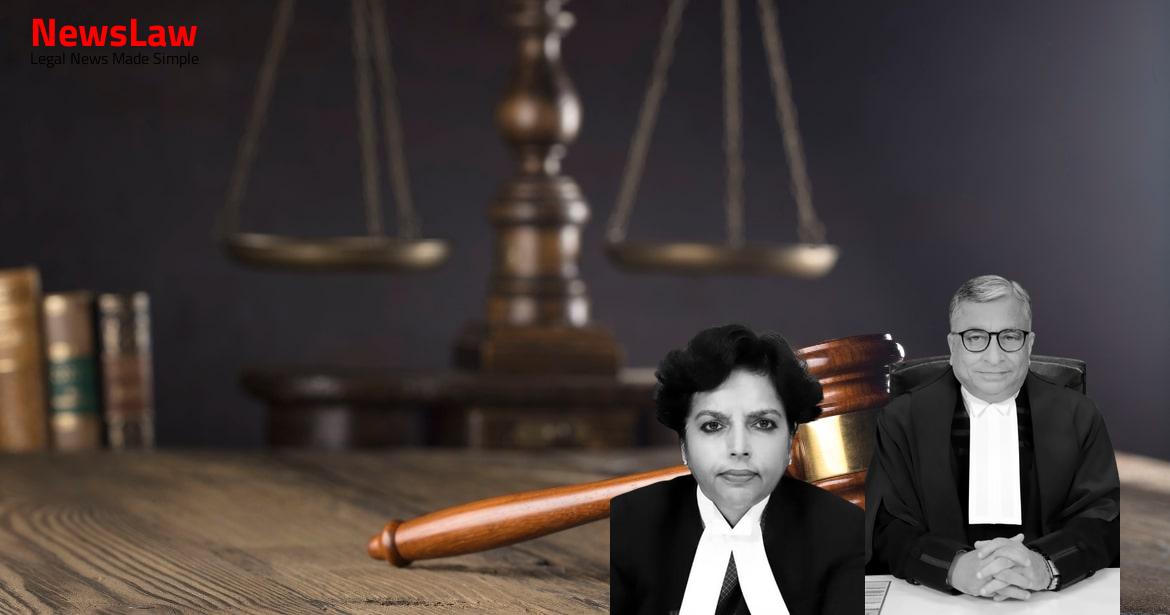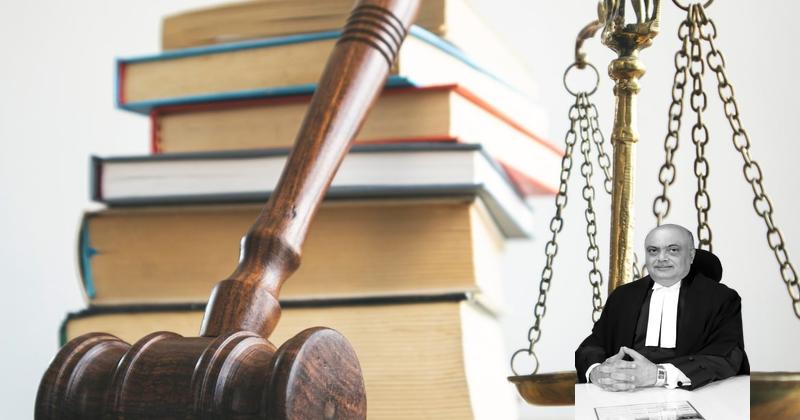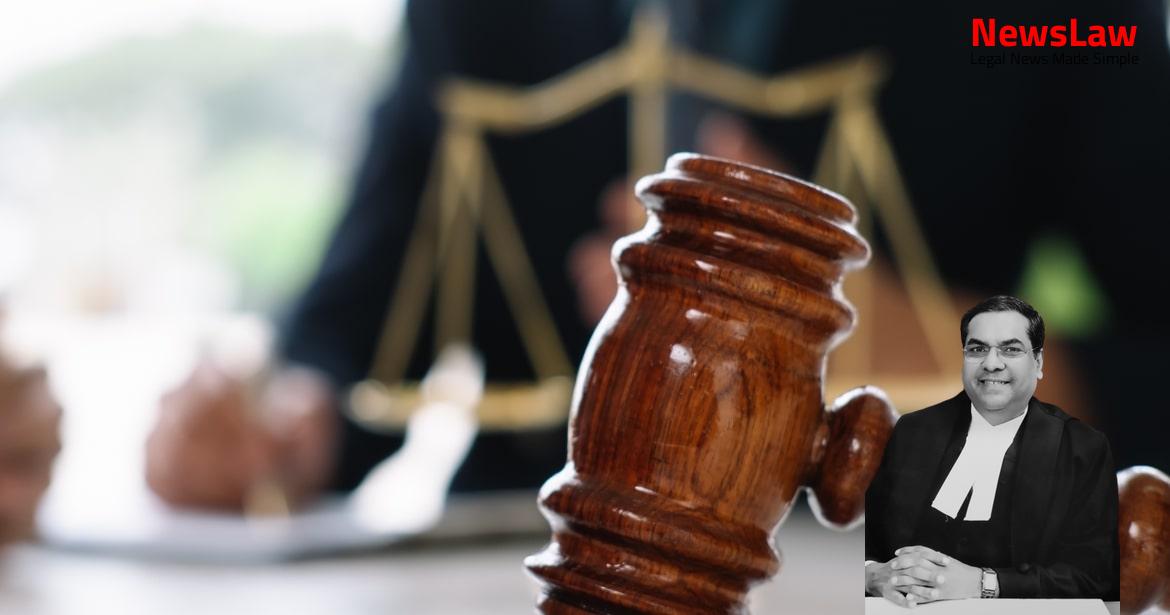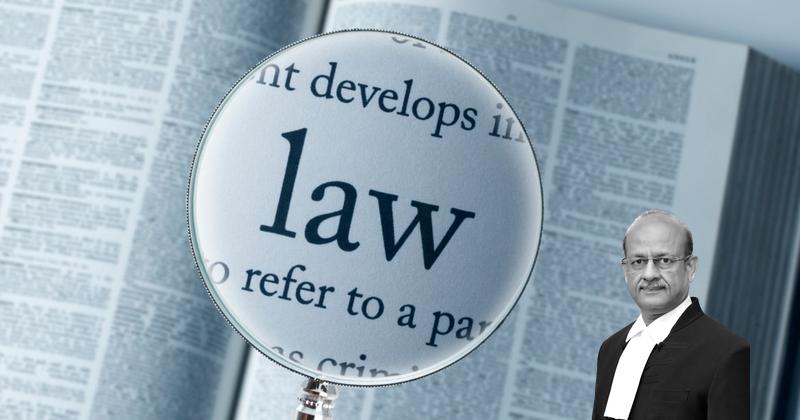The judiciary’s role in ensuring fairness and justice through meticulous legal analysis is paramount. This summary delves into the significance of scrutinizing defense pleas and the reasons for alleged false implications in court cases. Highlighting the critical need for a comprehensive examination of all aspects presented during a trial, especially the defense version. Unpacking the importance of the accused having a fair opportunity to explain incriminating evidence, as per the principles of natural justice. Stay tuned for insights on the essential elements of a fair legal analysis in court judgments.
Facts
- The appellant and co-accused called the complainant outside his house on 14.02.2003 at about 10:30 p.m.
- The appellant fired at the complainant with a country-made pistol when he came out, but the complainant managed to escape into the house without injury.
- The appellant and co-accused fled from the spot on their motorcycle after the incident.
- Witnesses including the complainant’s mother and neighbours arrived at the scene upon hearing the gunfire.
- The firearm used in the incident was recovered from the appellant along with an empty cartridge.
- The High Court of Madhya Pradesh at Jabalpur passed the judgment on the appeal on 26.05.2017.
- Appellant’s appeal against conviction under Section 307 IPC, Sections 25 and 27 of the Arms Act was dismissed by the High Court.
- The appellant was sentenced to three years of rigorous imprisonment under Section 307 IPC with a fine of Rs. 500/-.
- Additionally, he was sentenced to three years of rigorous imprisonment under Section 27 of the Arms Act with a fine of Rs. 1,000/- and one year of rigorous imprisonment under Section 25 of the Arms Act with a fine of Rs. 500/-.
- The appellant had served approximately 1 year, 7 months of his sentence before being released on bail by the Court during the pendency of the appeal.
- The trial Court convicted and sentenced the appellant while acquitting the co-accused due to lack of proof by the prosecution.
Also Read: Balancing Power and Transparency: Electoral Bonds Struck Down, Disclosure Mandated
Arguments
- No witnesses, besides the complainant, have seen the appellant at the site of the incident.
- The IO testified that no empty cartridges or pellets were recovered from the place of the incident, casting doubt on the prosecution’s case.
- Prosecution witnesses to the incident and alleged recovery of the firearm turned hostile.
- The prosecution’s case relies heavily on the complainant’s testimony and hearsay evidence from his mother, who is an interested witness.
- Lack of corroborative evidence or independent witnesses to support the testimonies.
- The complainant’s close nexus with the police department raised concerns about bias or ulterior motives.
- The prosecution relies on the statement of the complainant and his mother.
- The complainant stated that the accused-appellant came in front of his house, refused to leave when asked, fired a shot at him, and then fled on a bike.
- The complainant ran inside the house and was unharmed.
- Related witness statements need careful scrutiny as well.
- Cases like Bhaskarrao v. State of Maharashtra and State of Rajasthan v. Madan highlight the need for careful examination of related witness statements.
- The statements of the complainant and his mother need to be considered in context.
Also Read: Recall of Resolution Plan Approval: Legal Analysis
Analysis
- The defence put forth by the appellant-accused was that he was falsely implicated due to political rivalry and animosity related to college elections.
- The appellant-accused claimed to have not cast his vote in favor of the complainant’s candidate in the college election and mentioned being affiliated with a different student council.
- The courts failed to adequately consider the defence version presented by the appellant-accused in his Section 313 statement, leading to a lack of scrutiny of his alibi and reasons for alleged false implication.
- Contradictions in witness statements regarding seizure of the pistol and motorcycle add to the confusion in the case.
- The significance of the appellant’s defence plea and its implications were not thoroughly examined by the trial Court, impacting the fairness of the trial process.
- The lack of detailed analysis of the defence version and reasons for alleged false implication raise concerns regarding the completeness and fairness of the trial.
- Trial courts should not record the statement of the accused under Section 313 CrPC in a casual manner.
- The examination of the accused under Section 313 CrPC is not a mere procedural formality, but based on the fundamental principle of fairness.
- The accused should be given a reasonable opportunity to explain adverse evidence by questioning him specifically about his defense.
- The principle of natural justice ‘audi alteram partem’ is incorporated in Section 313 CrPC, allowing the accused to offer an explanation for incriminating material.
- If circumstances are bundled together and the accused is not given a fair opportunity to explain, it may result in an empty formality.
- Absence of independent evidence corroborating the complainant’s statements.
- Doubts regarding the recovery of the alleged motorcycle and pistol.
- Lack of connection between the recovered items and the alleged incident.
- Accused’s plausible version in Section 313 statement not adequately addressed by the prosecution.
- Insufficient evidence to prove the case beyond reasonable doubt.
- Prosecution’s case based on conjectures and surmises.
- Failure of the High Court and trial Court to consider critical circumstances in the judgment.
Decision
- The appellant stands discharged from the bail bonds.
- The appellant is on bail.
- The appeal is allowed.
- The conviction and sentence passed against the appellant are set aside.
Case Title: JAI PRAKASH TIWARI Vs. THE STATE OF MADHYA PRADESH (2022 INSC 791)
Case Number: Crl.A. No.-000704-000704 / 2018



